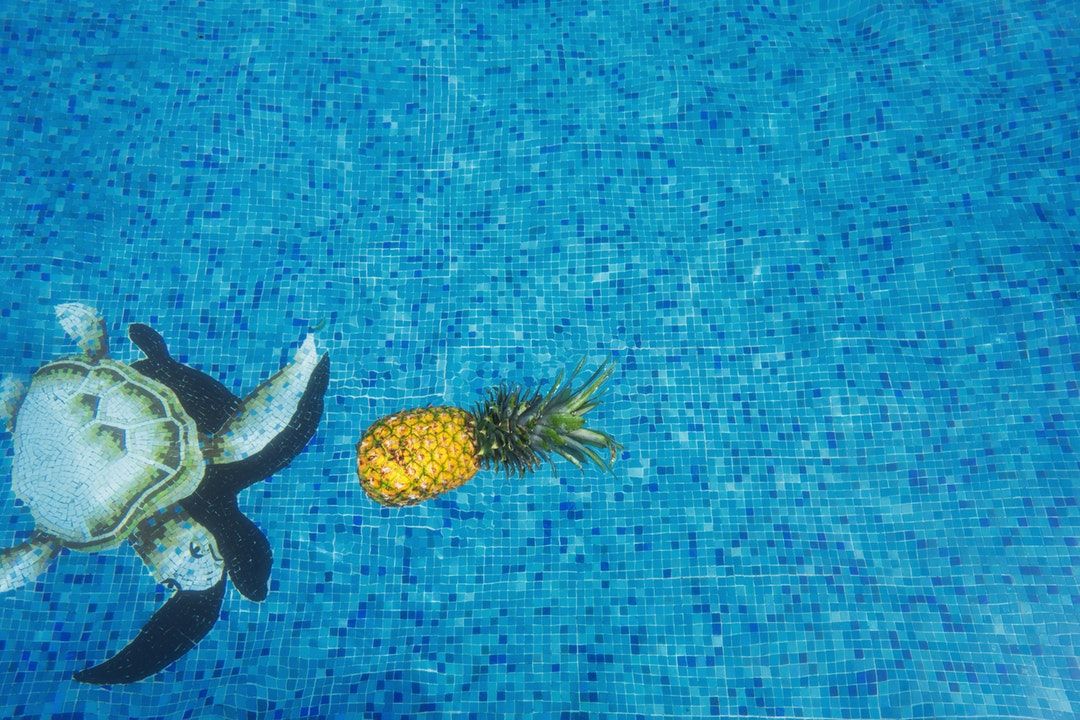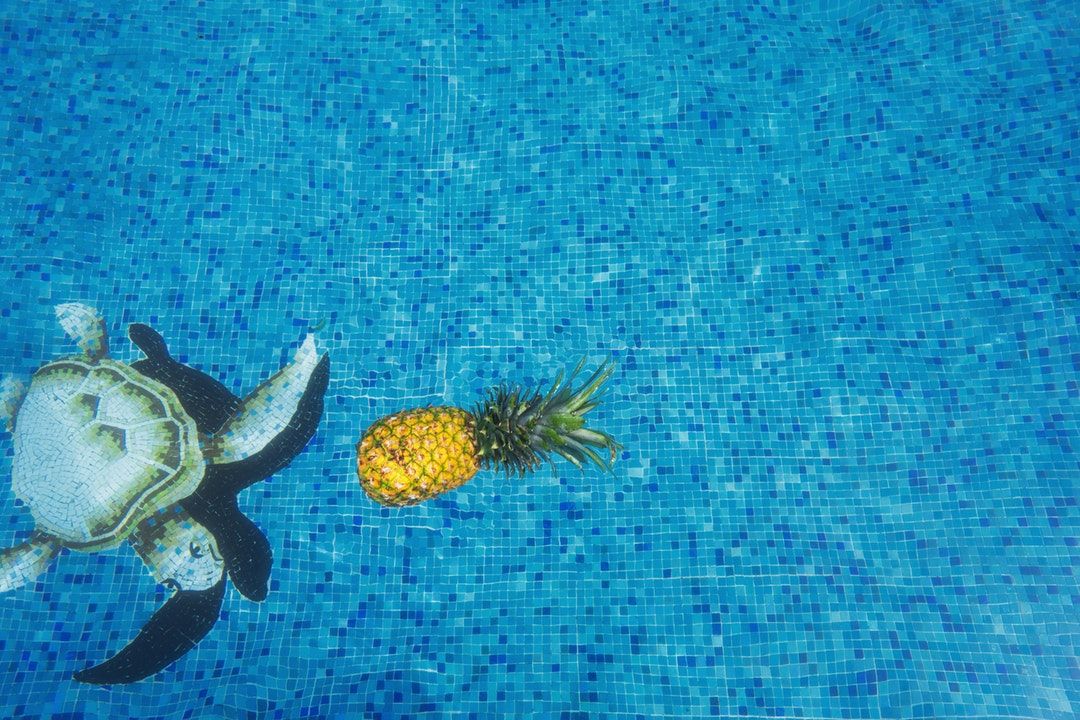Ex Nihilo; Out of nothing

It's Turtles All the Way Down at the Bottom
In the whimsical haven of the Gardens of Leisure, where the blue of the pool reflected the clear skies and the laughter of thinkers echoed through the air, there was Sophia, with a book in hand and a thought perched on the tip of her tongue. Here, beneath the shade of ancient olive trees and the watchful gaze of the mosaic turtle, she found herself at the crossroads of relaxation and revelation.
Leisure is the mother of philosophy.
— Thomas Hobbes (1588-1679)
Sophia’s days in the Gardens were filled with the soft humming of thought and the gentle scribbling of pen on paper. Ideas bloomed like the vibrant flowers that lined the pathways, and in the spirit of the Gardens, she pursued the threads of her musings with no urgency, allowing them to unravel in their own time. It was in this serene detachment from the world's hustle that Sophia's philosophy of joy—a text that would eventually be sought after across the land—was born.
Across the garden, laughter rippled as Alexander, known for his articulate jests and clever contraptions, attempted to balance a pineapple atop the shell of the mosaic turtle. His every action, even in jest, was measured and purposeful, much like the slow artistry of his craft. To Sophia, Alexander's playful balance of fruit and mosaic was a delightful parallel to the balance of leisure and intellect.
One afternoon, as the sun dappled the water with gold, Alexander approached Sophia with a twinkle in his eye. "Do you know," he began in his usual teasing tone, "why the turtle and the pineapple could be the patrons of our musings?" Sophia looked up, her curiosity piqued. "Because, dear Sophia, like our thoughts under the gentle command of leisure, they are unhurried and ripe with possibility," he declared with a flourish.
Sophia laughed, the sound mingling with the splashes of the water where the pineapple had landed after yet another of Alexander's unsuccessful attempts. This playful interaction, a staple of their daily encounters, was a testament to the Gardens' unique ability to foster both leisure and creativity—a place where philosophy was not just a discipline but a way of living, breathing, and laughing.
In this sanctuary of stillness and mirth, the ideas that sprung forth from Sophia’s mind were not merely intellectual pursuits but the offspring of leisure and contemplation. The Gardens of Leisure, with its mosaic turtle and buoyant pineapple, became the embodiment of philosophy's joyous and unhurried quest—a place where Sophia, with Alexander's companionship, wove wisdom and wit into a tapestry as enchanting as the endless blue of the pool.
Days passed, each more languid than the last, and the mosaic turtle seemed to watch with approval as the bond between Sophia and Alexander deepened. It was in this serene environment, with the soft echo of water lapping at the pool's edge and the distant murmur of discussions, that Sophia's philosophies matured like wine, gaining depth and nuance with each passing moment.
Their conversations often spanned the gap between sunlight and moonlight, a seamless tapestry of debate, insight, and humor. The garden was an amphitheater of thought, where the air was thick with the scent of jasmine and the promise of enlightenment. Here, Sophia and Alexander shared a vision that philosophy was not only a pursuit for the mind but a dance of the soul, a belief that the turtle, with its deliberate pace, and the pineapple, with its vibrant crown, could appreciate if they were more than just inanimate witnesses to human folly and wisdom.
Alexander, with the meticulous care that he lent to all his creations, began crafting a device that could mimic the ebb and flow of the garden's leisurely tempo. It was a clock of sorts, but one that kept time not in hours and minutes but in moments of insight and bursts of laughter. Sophia adored the idea, for it resonated with her notion that philosophy thrived not in the rigidity of schedules but in the spaciousness of time well enjoyed.
And so, as Alexander tinkered and twisted wires and gears, Sophia penned her thoughts on the pages that fluttered like white doves in her hands. Her manuscript grew, a living document that breathed the rarefied air of the Gardens and basked in the gentle sun that kissed the mosaic turtle's back.
One evening, as the sun dipped below the horizon, painting the sky in strokes of pink and orange, Alexander unveiled his creation. It was a curious contraption, all brass and copper, with dials that spun in seemingly random intervals and a pendulum that swung with an erratic yet strangely soothing rhythm. He placed it beside the pool, where the reflection of the turtle could be seen in its polished surface, and waited for Sophia's reaction.
She was silent for a long moment, taking in the whimsical machine with its odd timing and unpredictable movements. Then, her face broke into a smile, a laugh escaping her that was as light and genuine as the evening breeze. "You've captured it perfectly, Alexander," she said. "The very essence of leisure and philosophy entwined in a dance as old as time."
Those that are most slow in making a promise are the most faithful in the performance of it.
— Jean-Jacques Rousseau (1712-1778)
The contraption became another character in the garden, ticking away not the time but the quality of their interludes, the depth of their discourse, and the frequency of their mirth. It was a physical manifestation of their shared belief that leisure was not the enemy of productivity but its most profound ally, the fertile ground from which the greatest of human endeavors could sprout and flourish.
And flourish they did, for in the fullness of time, the symposium Sophia and Alexander had dreamt of came to pass. Philosophers and artists, writers and inventors, all gathered in the Gardens of Leisure, where ideas flowed as freely as the waters of the pool and laughter was as common as the whispered wisdom of the winds.

The planksip Writers' Cooperative is proud to sponsor an exciting article rewriting competition where you can win part of over $750,000 in available prize money.
Figures of Speech Collection Personified
Our editorial instructions for your contest submission are simple: incorporate the quotes and imagery from the above article into your submission.
What emerges is entirely up to you!
Winners receive $500 per winning entry multiplied by the article's featured quotes. Our largest prize is $8,000 for rewriting the following article;

At planksip, we believe in changing the way people engage—at least, that's the Idea (ἰδέα). By becoming a member of our thought-provoking community, you'll have the chance to win incredible prizes and access our extensive network of media outlets, which will amplify your voice as a thought leader. Your membership truly matters!


